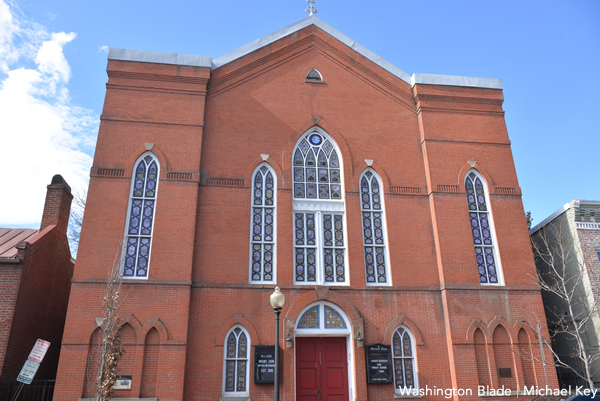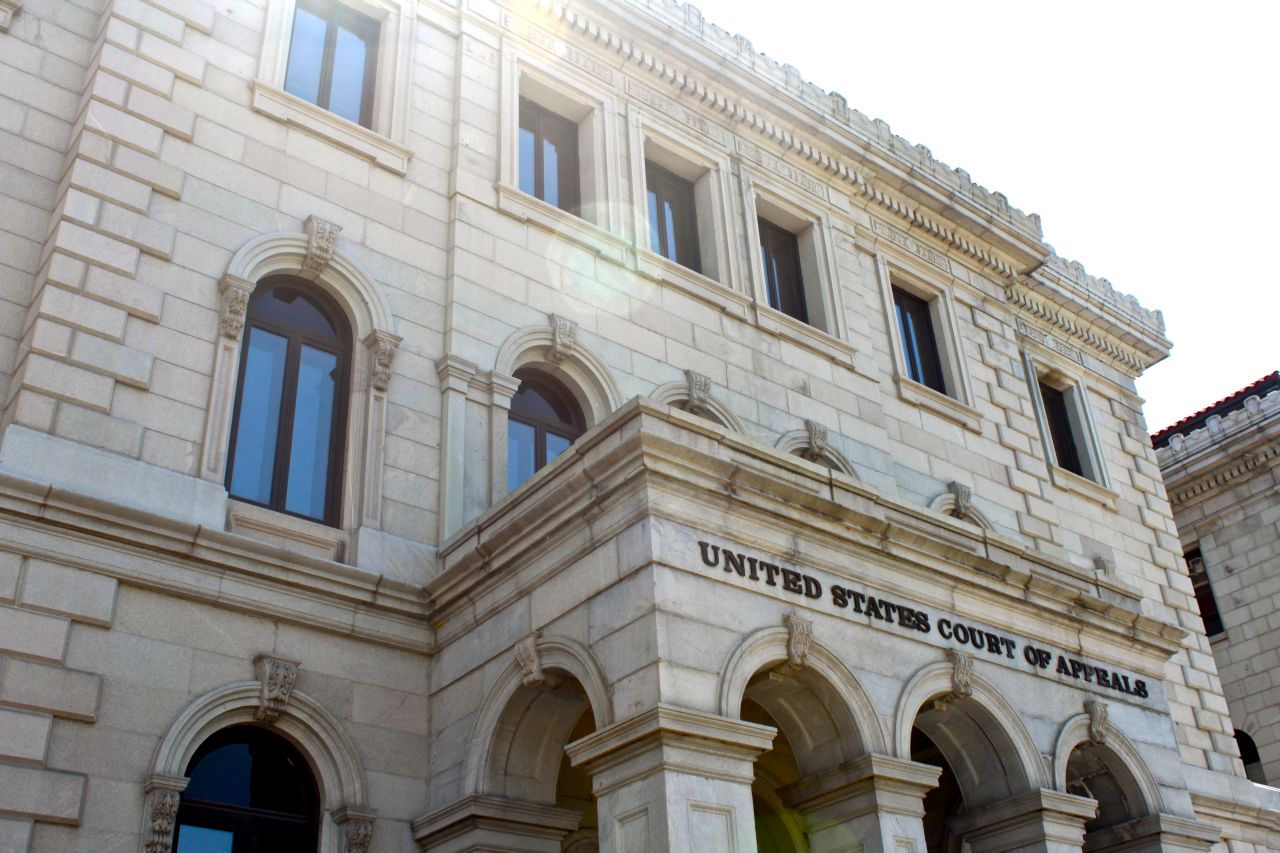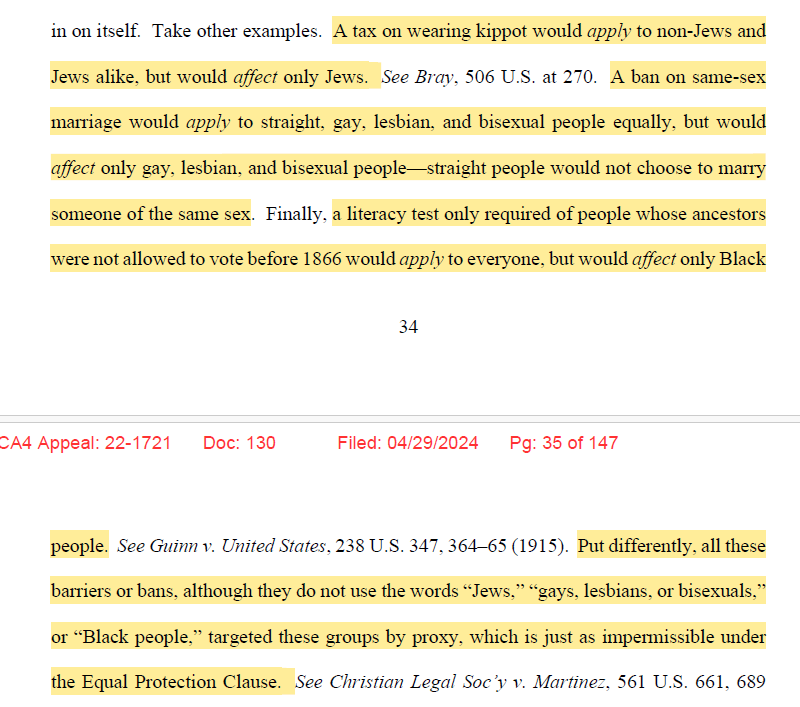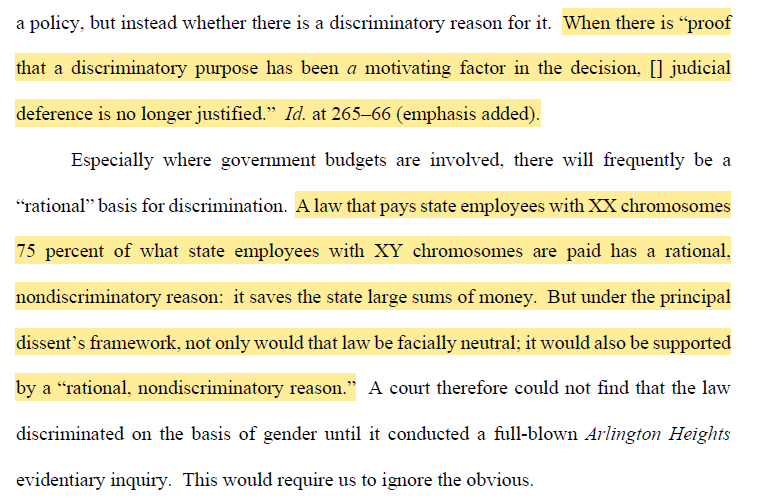National
Legal effort to overturn DOMA offers ‘promising path’
Attorneys prepare for May court hearing in Boston
The organization spearheading a lawsuit challenging the Defense of Marriage Act is busy with preparations for what could be a monumental court case for LGBT Americans.
Lawyers on both sides of Gill v. U.S. Office of Personnel Management will come before the Federal District Court in Boston on May 6 to argue their cases.
The litigation, filed by Gay & Lesbian Advocates & Defenders, aims to overturn Section 3 of DOMA, which bars the federal government from recognizing same-sex marriages.
Evan Wolfson, executive director of Freedom to Marry, said the GLAD litigation is “a very important, very well prepared case” and “offers a very promising path to beginning to undo the destructive and unconstitutional so-called Defense of Marriage Act.”
“GLAD thought through very carefully the best way to present the core concerns, powerful stories and a smart remedy to maximize our chances of winning in the U.S. Supreme Court,” he said.
Wolfson said he’s certain that GLAD’s attorneys will “be very forceful” in explaining why the federal government’s treatment of same-sex married couples is “unacceptable and unconstitutional.”
The plaintiffs in the case are seven married same-sex couples and three widowers, including Dean Hara, the spouse of Gerry Studds, the late Massachusetts congressman and first openly gay person to serve in Congress.
GLAD contends that as a result of DOMA, which President Bill Clinton signed in 1996, these plaintiffs have been harmed in various ways, including the denial of survivor benefits, health insurance coverage and Social Security benefits, as well as being forced to pay additional federal income taxes. The litigation contends DOMA violates plaintiffs’ rights under the Equal Protection Clause.
Gary Buseck, GLAD’s legal director, said preparations for the court appearance involve submitting several documents to the court to make their case before Judge Joseph Tauro.
The documents, he said, include memoranda of law to the court, a series of affidavits from the plaintiff couples and widowers, and expert affidavits showing why these couples should be treated as a suspect class for heightened scrutiny from the court.
“What we’re trying to think about is best arguments and how to succinctly present our best arguments,” he said. “We’re trying to think about — given what the government has put to writing — what are they likely to lead with, and are we content with the responses that we’ve written, and trying to imagine what the judge might ask.”
Representing the seven married same-sex couples and three widowers seeking federal marriage benefits in Massachusetts will be Mary Bonauto, GLAD’s civil rights project director.
Six years ago, Bonauto was the lead attorney in Goodridge v. Department of Public Health, the state lawsuit that brought same-sex marriage to Massachusetts, making the Bay State the first in the country to legalize gay nuptials.
Buseck said Bonauto is working on being “as heavily as prepared as possible” so she can “answer any question.”
Buseck said the court appearance on May 6 for the GLAD case wouldn’t be the same as the trial earlier this year for Perry v. Schwarzenegger, a lawsuit in California aimed at overturning Proposition 8.
Because the U.S. government filed a motion to dismiss and GLAD filed a request for summary judgment, Buseck said he’s expecting about 45 minutes to an hour of courtroom activity May 6 instead of a trial lasting several weeks, as in the Perry case.
“We don’t know exactly how much time we’re going to have,” he said. “It’s not like an appeals court where they give you a set of block of time and that’s what you get. This is going to be a little more informal than that.”
The Justice Department didn’t respond to DC Agenda’s request to discuss the case.
Buseck said GLAD can guess how the U.S. government will present itself during the court appearance because of the briefs the Justice Department has already issued.
He noted the Obama administration has said it doesn’t agree with the findings Congress presented in 1996 when it passed DOMA and that it considers the statute is discriminatory, but will nonetheless defend the statute because it believes the statute is constitutional.
Buseck predicted that the government will argue it was rational for Congress to enact DOMA in 1996 in an effort to maintain the status quo and “wait and see how this cultural debate plays out.”
“That’s been their fundamental argument to date, and presumably that’s where they’re going to stick,” he said. “So we’re ready for that. We’ve had to respond to those arguments in writing already.”
Legal experts following the case of Gill v. OPM expect it to reach the U.S. Supreme Court and, if successful, the lawsuit would force the U.S. government to recognize same-sex marriages for federal tax purposes and for Social Security benefits.
Buseck said he thinks it’s possible a decision could come down from a trial court in the summer, but more likely a ruling will be issued this fall.
Following the decision, Buseck said the case would likely go to the First Circuit Court of Appeals at the beginning of next year with a possible decision in Spring 2012. If the case were to go to the U.S. Supreme Court, it could go on the 2012 term and be decided in June 2013.
But Buseck emphasized that those dates were a “ballpark” estimate and said “there’s a lot of things that could change those dates.”
Running concurrently with the Gill lawsuit in the Federal District Court in Boston is another case challenging DOMA last year by Massachusetts Attorney General Martha Coakley: Commonwealth of Massachusetts v. U.S. Department of Health & Human Services.
Like the Gill case, the state lawsuit challenges the section of DOMA that prohibits the federal government from recognizing same-sex marriage, but contends that it violates Massachusetts’ state right to regulate marriage under the Tenth Amendment.
The Commonwealth case will be heard in the same court and by the same judge, but the court date is scheduled for May 26.
Buseck said the Commonwealth case and the Gill case “complement each other” but “are in different boxes as far as legal theories go.”
“My sense is the judge will probably just for efficiencies’ sake somehow work on these cases together and it’s been my guess — but I’ve no reason to know that — I won’t be surprised if we get decisions on the same day,” Buseck said.
National
United Methodist Church removes 40-year ban on gay clergy
Delegates also voted for other LGBTQ-inclusive measures

The United Methodist Church on Wednesday removed a ban on gay clergy that was in place for more than 40 years, voting to also allow LGBTQ weddings and end prohibitions on the use of United Methodist funds to “promote acceptance of homosexuality.”
Overturning the policy forbidding the church from ordaining “self-avowed practicing homosexuals” effectively formalized a practice that had caused an estimated quarter of U.S. congregations to leave the church.
The New York Times notes additional votes “affirming L.G.B.T.Q. inclusion in the church are expected before the meeting adjourns on Friday.” Wednesday’s measures were passed overwhelmingly and without debate. Delegates met in Charlotte, N.C.
According to the church’s General Council on Finance and Administration, there were 5,424,175 members in the U.S. in 2022 with an estimated global membership approaching 10 million.
The Times notes that other matters of business last week included a “regionalization” plan, which gave autonomy to different regions such that they can establish their own rules on matters including issues of sexuality — about which international factions are likelier to have more conservative views.
Rev. Kipp Nelson of St. Johns’s on the Lake Methodist Church in Miami shared a statement praising the new developments:
“It is a glorious day in the United Methodist Church. As a worldwide denomination, we have now publicly proclaimed the boundless love of God and finally slung open the doors of our church so that all people, no matter their identities or orientations, may pursue the calling of their hearts.
“Truly, all are loved and belong here among us. I am honored to serve as a pastor in the United Methodist Church for such a time as this, for our future is bright and filled with hope. Praise be, praise be.”
Federal Government
Republican state AGs challenge Biden administration’s revised Title IX policies
New rules protect LGBTQ students from discrimination

Four Republicans state attorneys general have sued the Biden-Harris administration over the U.S. Department of Education’s new Title IX policies that were finalized April 19 and carry anti-discrimination protections for LGBTQ students in public schools.
The lawsuit filed on Tuesday, which is led by the attorneys general of Kentucky and Tennessee, follows a pair of legal challenges from nine Republican states on Monday — all contesting the administration’s interpretation that sex-based discrimination under the statute also covers that which is based on the victim’s sexual orientation or gender identity.
The administration also rolled back Trump-era rules governing how schools must respond to allegations of sexual harassment and sexual assault, which were widely perceived as biased in favor of the interests of those who are accused.
“The U.S. Department of Education has no authority to let boys into girls’ locker rooms,” Tennessee Attorney General Jonathan Skrmetti said in a statement. “In the decades since its adoption, Title IX has been universally understood to protect the privacy and safety of women in private spaces like locker rooms and bathrooms.”
“Florida is suing the Biden administration over its unlawful Title IX changes,” Florida Gov. Ron DeSantis wrote on social media. “Biden is abusing his constitutional authority to push an ideological agenda that harms women and girls and conflicts with the truth.”
After announcing the finalization of the department’s new rules, Education Secretary Miguel Cardona told reporters, “These regulations make it crystal clear that everyone can access schools that are safe, welcoming and that respect their rights.”
The new rule does not provide guidance on whether schools must allow transgender students to play on sports teams corresponding with their gender identity to comply with Title IX, a question that is addressed in a separate rule proposed by the agency in April.
LGBTQ and civil rights advocacy groups praised the changes. Lambda Legal issued a statement arguing the new rule “protects LGBTQ+ students from discrimination and other abuse,” adding that it “appropriately underscores that Title IX’s civil rights protections clearly cover LGBTQ+ students, as well as survivors and pregnant and parenting students across race and gender identity.”
Federal Government
4th Circuit rules gender identity is a protected characteristic
Ruling a response to N.C., W.Va. legal challenges

BY ERIN REED | The 4th U.S. Circuit Court of Appeals ruled Monday that transgender people are a protected class and that Medicaid bans on trans care are unconstitutional.
Furthermore, the court ruled that discriminating based on a diagnosis of gender dysphoria is discrimination based on gender identity and sex. The ruling is in response to lower court challenges against state laws and policies in North Carolina and West Virginia that prevent trans people on state plans or Medicaid from obtaining coverage for gender-affirming care; those lower courts found such exclusions unconstitutional.
In issuing the final ruling, the 4th Circuit declared that trans exclusions were “obviously discriminatory” and were “in violation of the equal protection clause” of the Constitution, upholding lower court rulings that barred the discriminatory exclusions.
The 4th Circuit ruling focused on two cases in states within its jurisdiction: North Carolina and West Virginia. In North Carolina, trans state employees who rely on the State Health Plan were unable to use it to obtain gender-affirming care for gender dysphoria diagnoses.
In West Virginia, a similar exclusion applied to those on the state’s Medicaid plan for surgeries related to a diagnosis of gender dysphoria. Both exclusions were overturned by lower courts, and both states appealed to the 4th Circuit.
Attorneys for the states had argued that the policies were not discriminatory because the exclusions for gender affirming care “apply to everyone, not just transgender people.” The majority of the court, however, struck down such a claim, pointing to several other cases where such arguments break down, such as same-sex marriage bans “applying to straight, gay, lesbian, and bisexual people equally,” even though straight people would be entirely unaffected by such bans.
Other cases cited included literacy tests, a tax on wearing kippot for Jewish people, and interracial marriage in Loving v. Virginia.
See this portion of the court analysis here:

Of particular note in the majority opinion was a section on Geduldig v. Aiello that seemed laser-targeted toward an eventual U.S. Supreme Court decision on discriminatory policies targeting trans people. Geduldig v. Aiello, a 1974 ruling, determined that pregnancy discrimination is not inherently sex discrimination because it does not “classify on sex,” but rather, on pregnancy status.
Using similar arguments, the states claimed that gender affirming care exclusions did not classify or discriminate based on trans status or sex, but rather, on a diagnosis of gender dysphoria and treatments to alleviate that dysphoria.
The majority was unconvinced, ruling, “gender dysphoria is so intimately related to transgender status as to be virtually indistinguishable from it. The excluded treatments aim at addressing incongruity between sex assigned at birth and gender identity, the very heart of transgender status.” In doing so, the majority cited several cases, many from after Geduldig was decided.
Notably, Geduldig was cited in both the 6th and 11th Circuit decisions upholding gender affirming care bans in a handful of states.
The court also pointed to the potentially ridiculous conclusions that strict readings of what counts as proxy discrimination could lead to, such as if legislators attempted to use “XX chromosomes” and “XY chromosomes” to get around sex discrimination policies:
Importantly, the court also rebutted recent arguments that Bostock applies only to “limited Title VII claims involving employers who fired” LGBTQ employees, and not to Title IX, which the Affordable Care Act’s anti-discrimination mandate references. The majority stated that this is not the case, and that there is “nothing in Bostock to suggest the holding was that narrow.”
Ultimately, the court ruled that the exclusions on trans care violate the Equal Protection Clause of the Constitution. The court also ruled that the West Virginia Medicaid Program violates the Medicaid Act and the anti-discrimination provisions of the Affordable Care Act.
Additionally, the court upheld the dismissal of anti-trans expert testimony for lacking relevant expertise. West Virginia and North Carolina must end trans care exclusions in line with earlier district court decisions.
The decision will likely have nationwide impacts on court cases in other districts. The case had become a major battleground for trans rights, with dozens of states filing amicus briefs in favor or against the protection of the equal process rights of trans people. Twenty-one Republican states filed an amicus brief in favor of denying trans people anti-discrimination protections in healthcare, and 17 Democratic states joined an amicus brief in support of the healthcare rights of trans individuals.
Many Republican states are defending anti-trans laws that discriminate against trans people by banning or limiting gender-affirming care. These laws could come under threat if the legal rationale used in this decision is adopted by other circuits. In the 4th Circuit’s jurisdiction, West Virginia and North Carolina already have gender-affirming care bans for trans youth in place, and South Carolina may consider a similar bill this week.
The decision could potentially be used as precedent to challenge all of those laws in the near future and to deter South Carolina’s bill from passing into law.
The decision is the latest in a web of legal battles concerning trans people. Earlier this month, the 4th Circuit also reversed a sports ban in West Virginia, ruling that Title IX protects trans student athletes. However, the Supreme Court recently narrowed a victory for trans healthcare from the 9th U.S. Circuit Court of Appeals and allowed Idaho to continue enforcing its ban on gender-affirming care for everyone except the two plaintiffs in the case.
Importantly, that decision was not about the constitutionality of gender-affirming care, but the limits of temporary injunctions in the early stages of a constitutional challenge to discriminatory state laws. It is likely that the Supreme Court will ultimately hear cases on this topic in the near future.
Celebrating the victory, Lambda Legal Counsel and Health Care Strategist Omar Gonzalez-Pagan said in a posted statement, “The court’s decision sends a clear message that gender-affirming care is critical medical care for transgender people and that denying it is harmful and unlawful … We hope this decision makes it clear to policy makers across the country that health care decisions belong to patients, their families, and their doctors, not to politicians.”
****************************************************************************

Erin Reed is a transgender woman (she/her pronouns) and researcher who tracks anti-LGBTQ+ legislation around the world and helps people become better advocates for their queer family, friends, colleagues, and community. Reed also is a social media consultant and public speaker.
******************************************************************************************
The preceding article was first published at Erin In The Morning and is republished with permission.





















